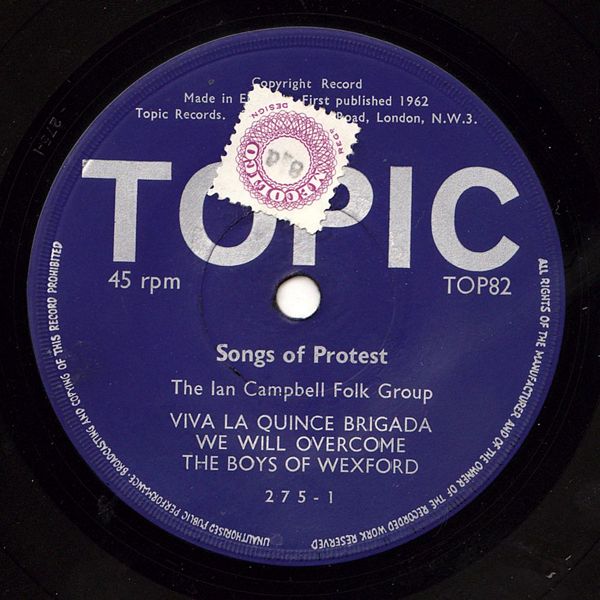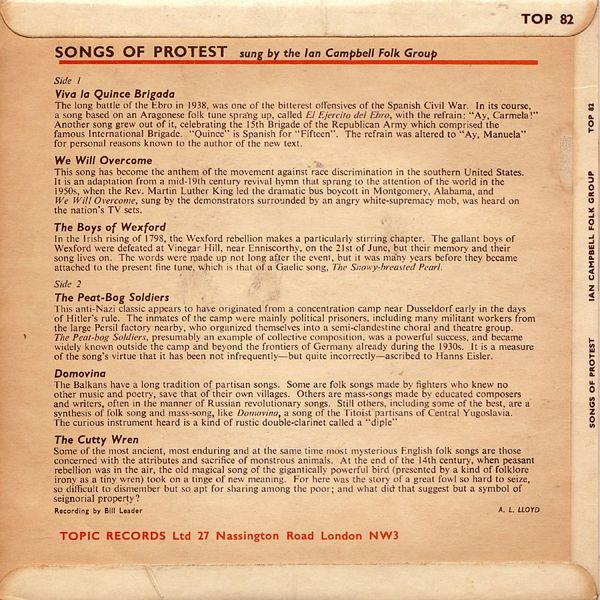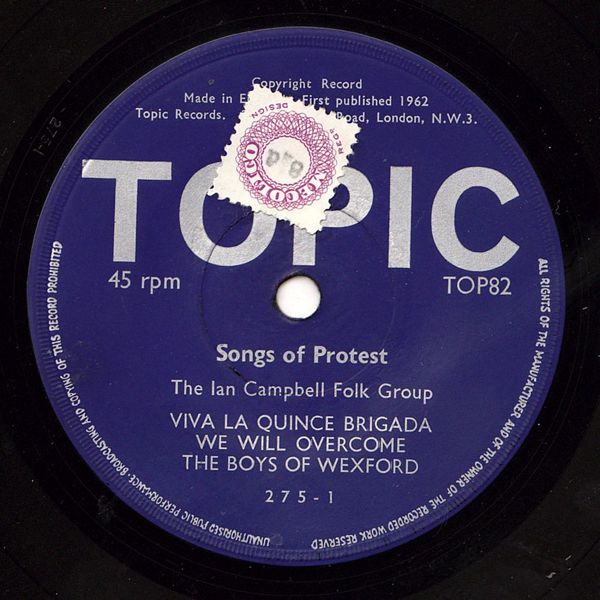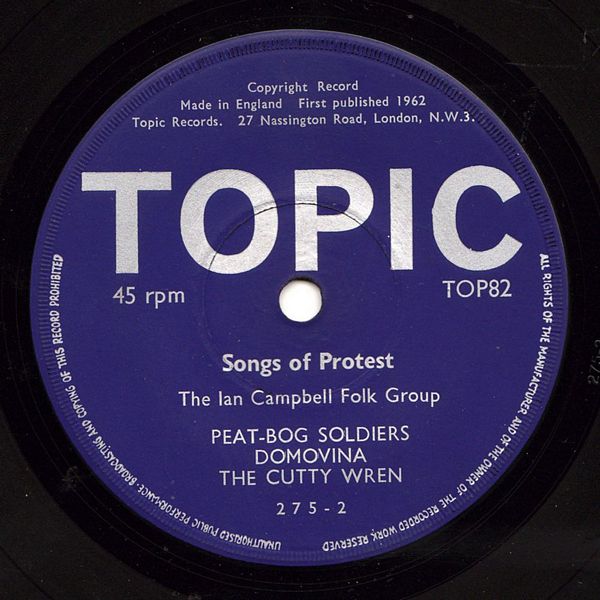

 |


 |
Sleeve Notes
Viva la Quince Brigada
The long battle of the Ebro in 1938, was one of the bitterest offensives of the Spanish Civil War. In its course, a song based on an Aragonese folk tune sprang up, called El Ejercito del Ebro, with the refrain: "Ay, Carmela!" Another song grew out of it, celebrating the 15th Brigade of the Republican Army which comprised the famous International Brigade. "Quince" is Spanish for "Fifteen". The refrain was altered to "Ay, Manuela" for personal reasons known to the author of the new text.
We Will Overcome
This song has become the anthem of the movement against race discrimination in the southern United States. It is an adaptation from a mid-19th century revival hymn that sprang to the attention of the world in the 1950s, when the Rev. Martin Luther King led the dramatic bus boycott in Montgomery, Alabama, and We Will Overcome, sung by the demonstrators surrounded by an angry white-supremacy mob, was heard on the nation's TV sets.
The Boys of Wexford
In the Irish rising of 1798, the Wexford rebellion makes a particularly stirring chapter. The gallant boys of Wexford were defeated at Vinegar Hill, near Enniscorthy on the 21st of June, but their memory and their song lives on. The words were made up not long after the event, but it was many years before they became attached to the present fine tune, which is that of a Gaelic song. The Snowy-breasted Pearl.
The Peat-Bog Soldiers
This anti-Nazi classic appears to have originated from a concentration camp near Dusseldorf early in the days of Hitler's rule. The inmates of the camp were mainly political prisoners, including many militant workers from the large Persil factory nearby, who organized themselves into a semi-clandestine choral and theatre group. The Peat-bog Soldiers, presumably an example of collective composition, was a powerful success, and became widely known outside the camp and beyond the frontiers of Germany already during the 1930s. It is a measure of the song's virtue that it has been not infrequently — but quite incorrectly — ascribed to Hanns Eisler.
Domovina
The Balkans have a long tradition of partisan songs. Some are folk songs made by fighters who knew no other music and poetry, save that of their own villages. Others are mass-songs made by educated composers and writers, often in the manner of Russian revolutionary songs. Still others, including some of the best, are a synthesis of folk song and mass-song, like Doniovina, a song of the Titoist partisans of Central Yugoslavia. The curious instrument heard is a kind of rustic double-clarinet called a "diple".
The Cutty Wren
Some of the most ancient, most enduring and at the same time most mysterious English folk songs are those concerned with the attributes and sacrifice of monstrous animals. At the end of the 14th century, when peasant rebellion was in the air, the old magical song of the gigantically powerful bird (presented by a kind of folklore irony as a tiny wren) took on a tinge of new meaning. For here was the story of a great fowl so hard to seize, so difficult to dismember but so apt for sharing among the poor; and what did that suggest but a symbol of seignorial property?
A. L. Lloyd